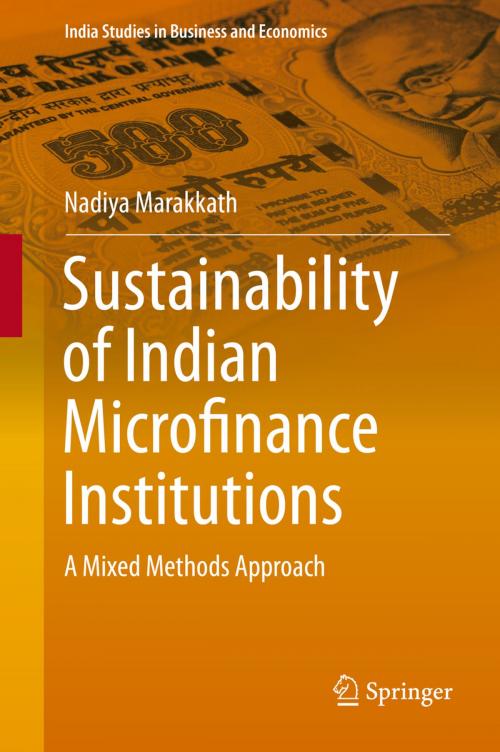Sustainability of Indian Microfinance Institutions
A Mixed Methods Approach
Business & Finance, Economics, Macroeconomics, Finance & Investing, Finance| Author: | Nadiya Marakkath | ISBN: | 9788132216292 |
| Publisher: | Springer India | Publication: | October 23, 2013 |
| Imprint: | Springer | Language: | English |
| Author: | Nadiya Marakkath |
| ISBN: | 9788132216292 |
| Publisher: | Springer India |
| Publication: | October 23, 2013 |
| Imprint: | Springer |
| Language: | English |
Although 'doing good' is our innate nature, we often get lost in the complexities and view goodness as a distant dream. Making this dream of goodness a reality is often thwarted by thoughts surrounding sustainability. Thus, all good initiatives require a focus on sustainability and this has become one of greatest and most formidable challenges faced by any social enterprise. The book documents the understanding of the sustainability of one of the most celebrated forms of social enterprise of our times — Microfinance Institutions (MFIs) gained through a mixed-methods research investigation. It attempts to answer pertinent questions such as: What are the determinant and discriminating factors for the sustainability of MFIs in India? How are these factors being managed by the operationally efficient Indian MFIs that remained sustainable at reasonable interest rates before the onset of the crisis and ceilings imposition in Indian microfinance markets? What does the Indian microfinance crisis teach us about sustainability management and mismanagement? In a nutshell, the answers show that sustainability is a strategic issue that needs managerial attention and not a matter to be left to serendipity. At a time when the industry is recovering from the adverse effects of a crisis and when there are still contentions as to whether the rate fixed by the regulator is enough for the sustenance of the MFIs, the findings mentioned in the book revive the lost hope for the Indian microfinance industry. By deciphering the strategies used by efficient and sustainable MFIs and discussing the lessons that the crisis has imparted to the Indian microfinance markets, this book will enable Indian MFIs to march towards efficient and sustainable operations without losing focus on their clients.
Although 'doing good' is our innate nature, we often get lost in the complexities and view goodness as a distant dream. Making this dream of goodness a reality is often thwarted by thoughts surrounding sustainability. Thus, all good initiatives require a focus on sustainability and this has become one of greatest and most formidable challenges faced by any social enterprise. The book documents the understanding of the sustainability of one of the most celebrated forms of social enterprise of our times — Microfinance Institutions (MFIs) gained through a mixed-methods research investigation. It attempts to answer pertinent questions such as: What are the determinant and discriminating factors for the sustainability of MFIs in India? How are these factors being managed by the operationally efficient Indian MFIs that remained sustainable at reasonable interest rates before the onset of the crisis and ceilings imposition in Indian microfinance markets? What does the Indian microfinance crisis teach us about sustainability management and mismanagement? In a nutshell, the answers show that sustainability is a strategic issue that needs managerial attention and not a matter to be left to serendipity. At a time when the industry is recovering from the adverse effects of a crisis and when there are still contentions as to whether the rate fixed by the regulator is enough for the sustenance of the MFIs, the findings mentioned in the book revive the lost hope for the Indian microfinance industry. By deciphering the strategies used by efficient and sustainable MFIs and discussing the lessons that the crisis has imparted to the Indian microfinance markets, this book will enable Indian MFIs to march towards efficient and sustainable operations without losing focus on their clients.















